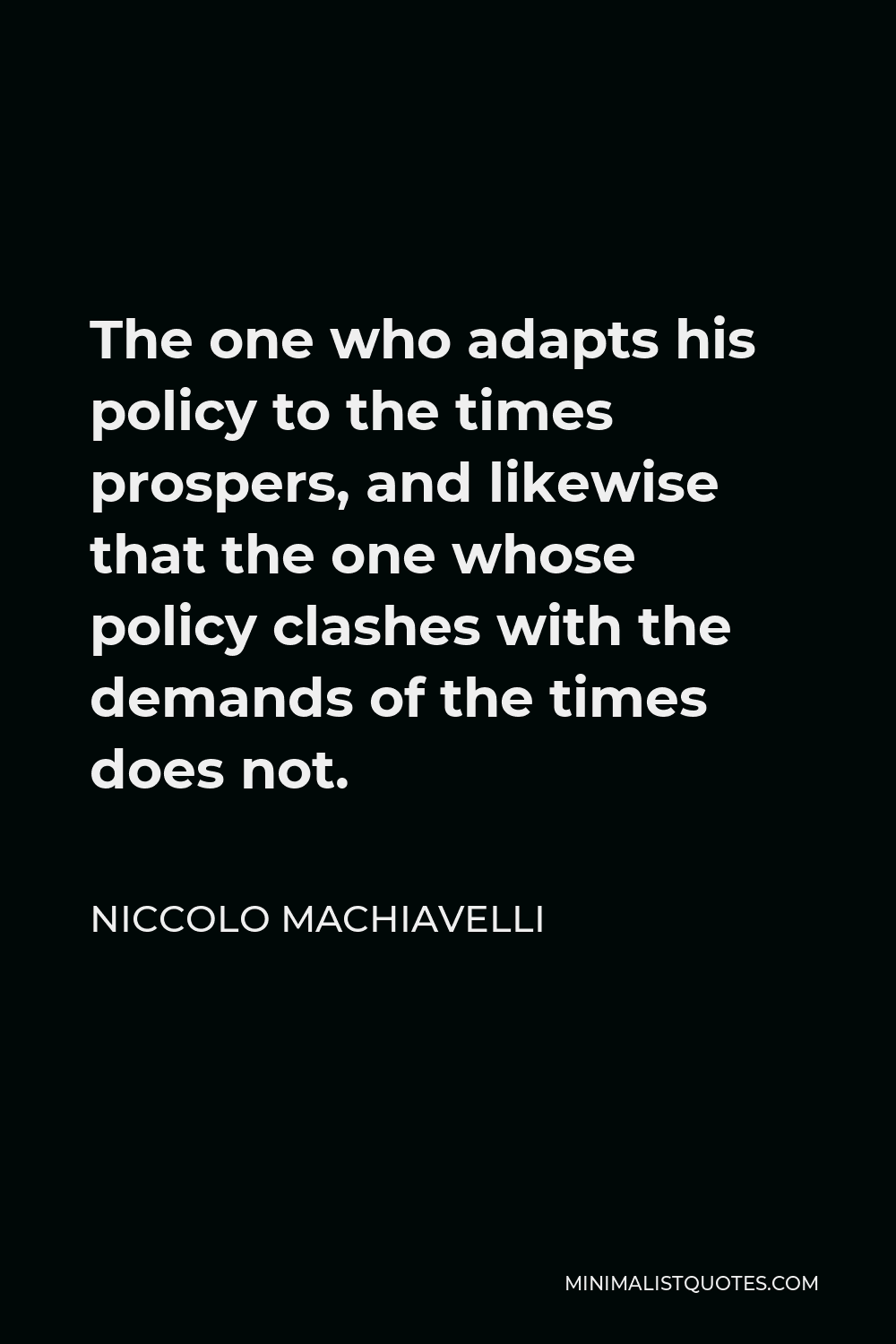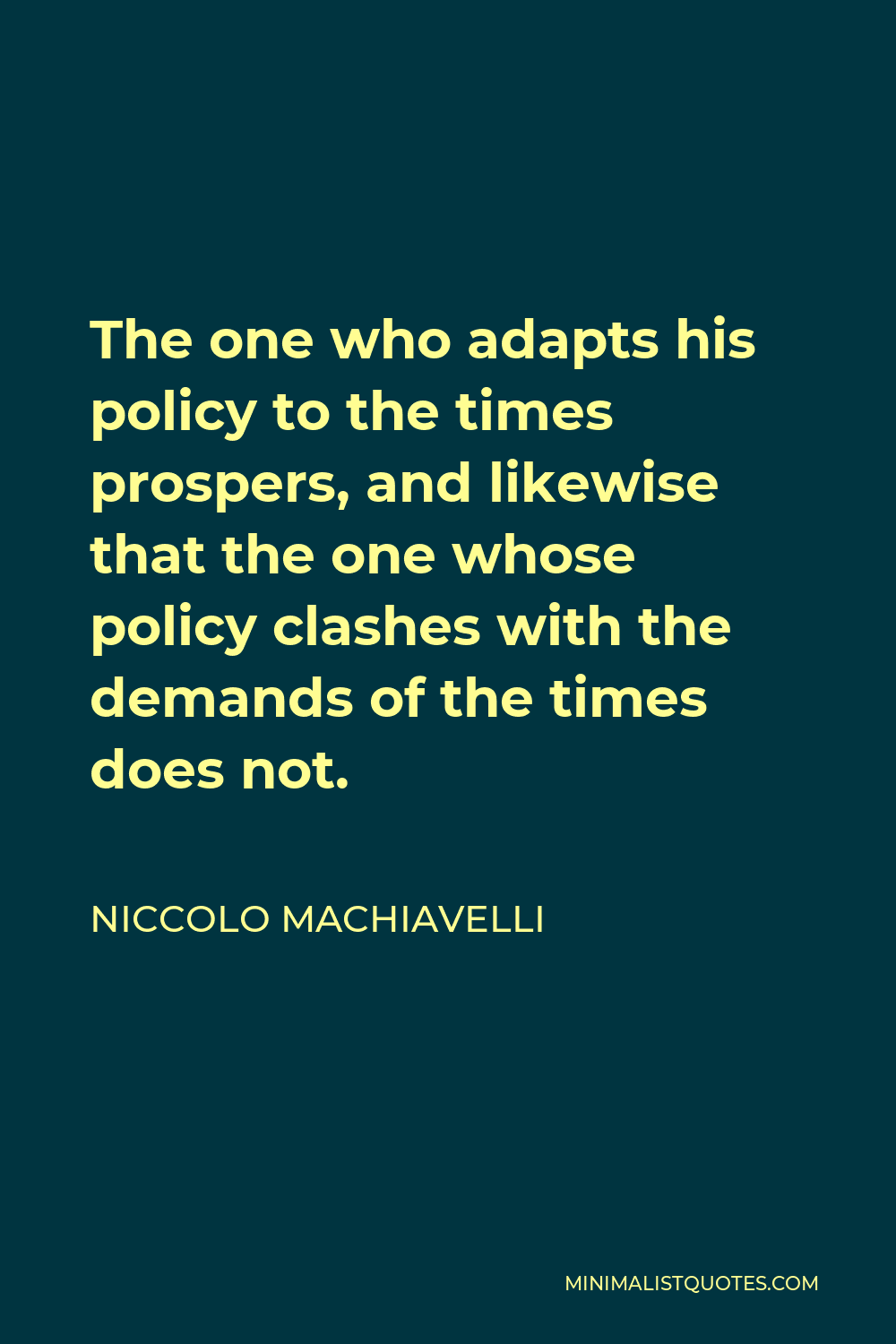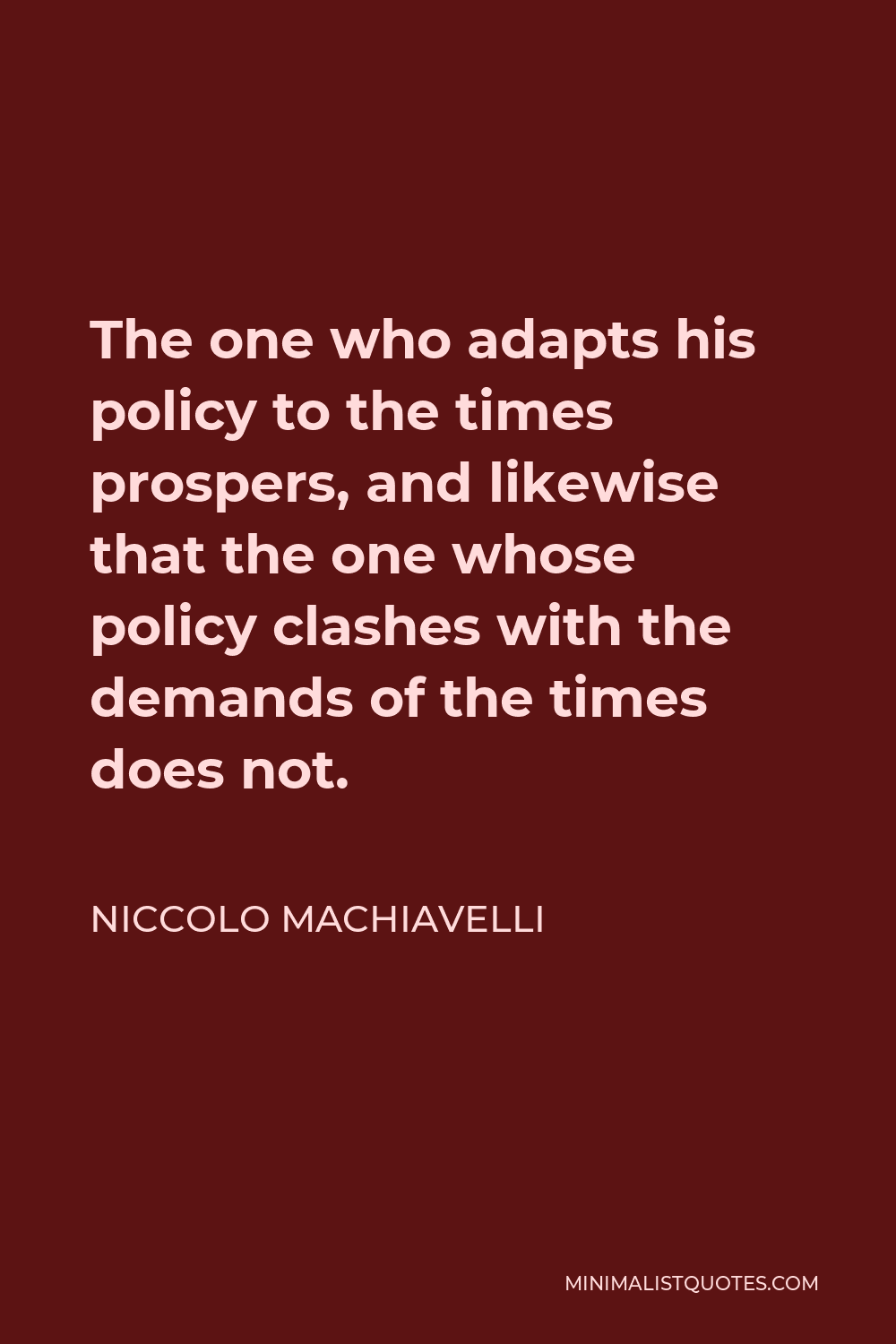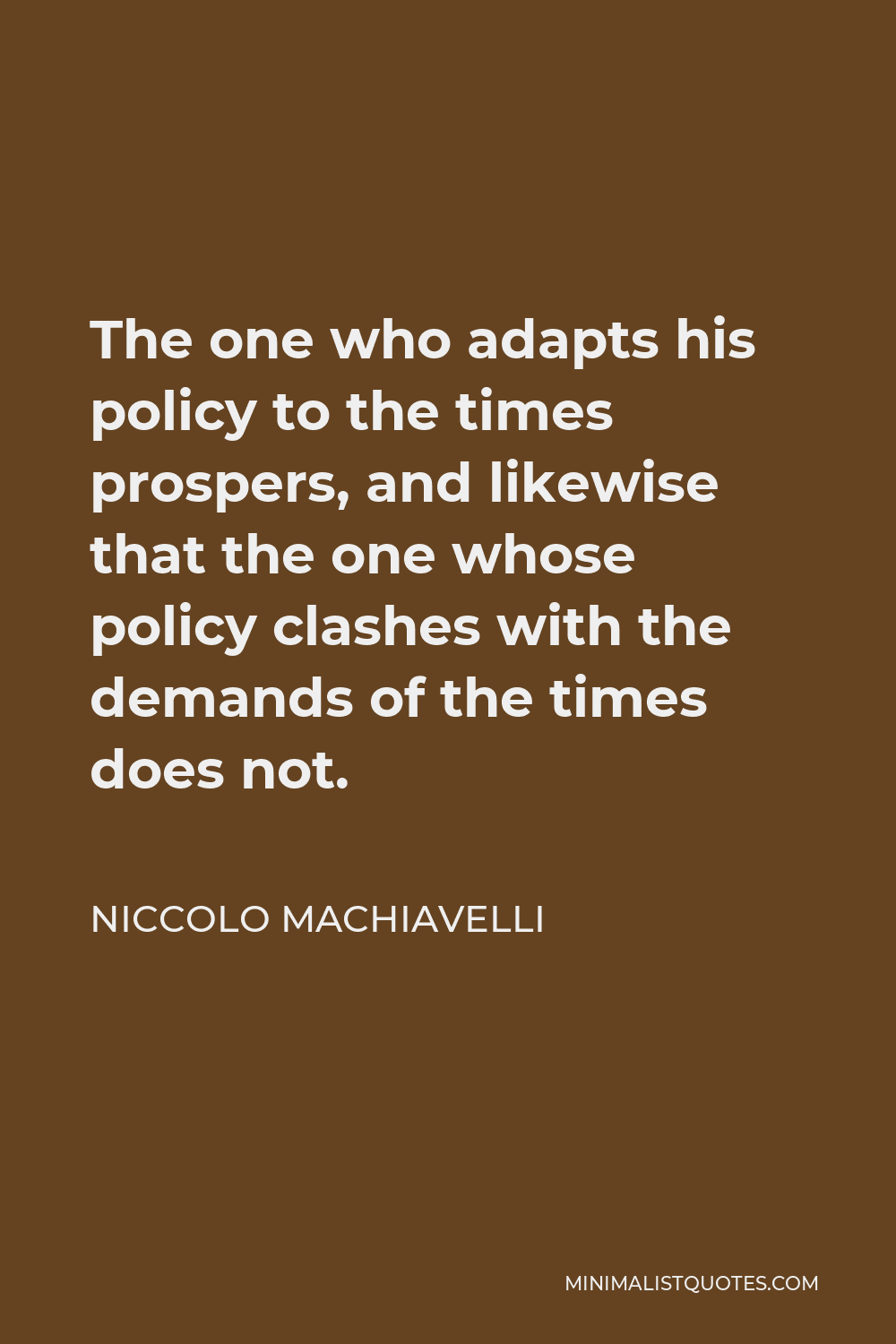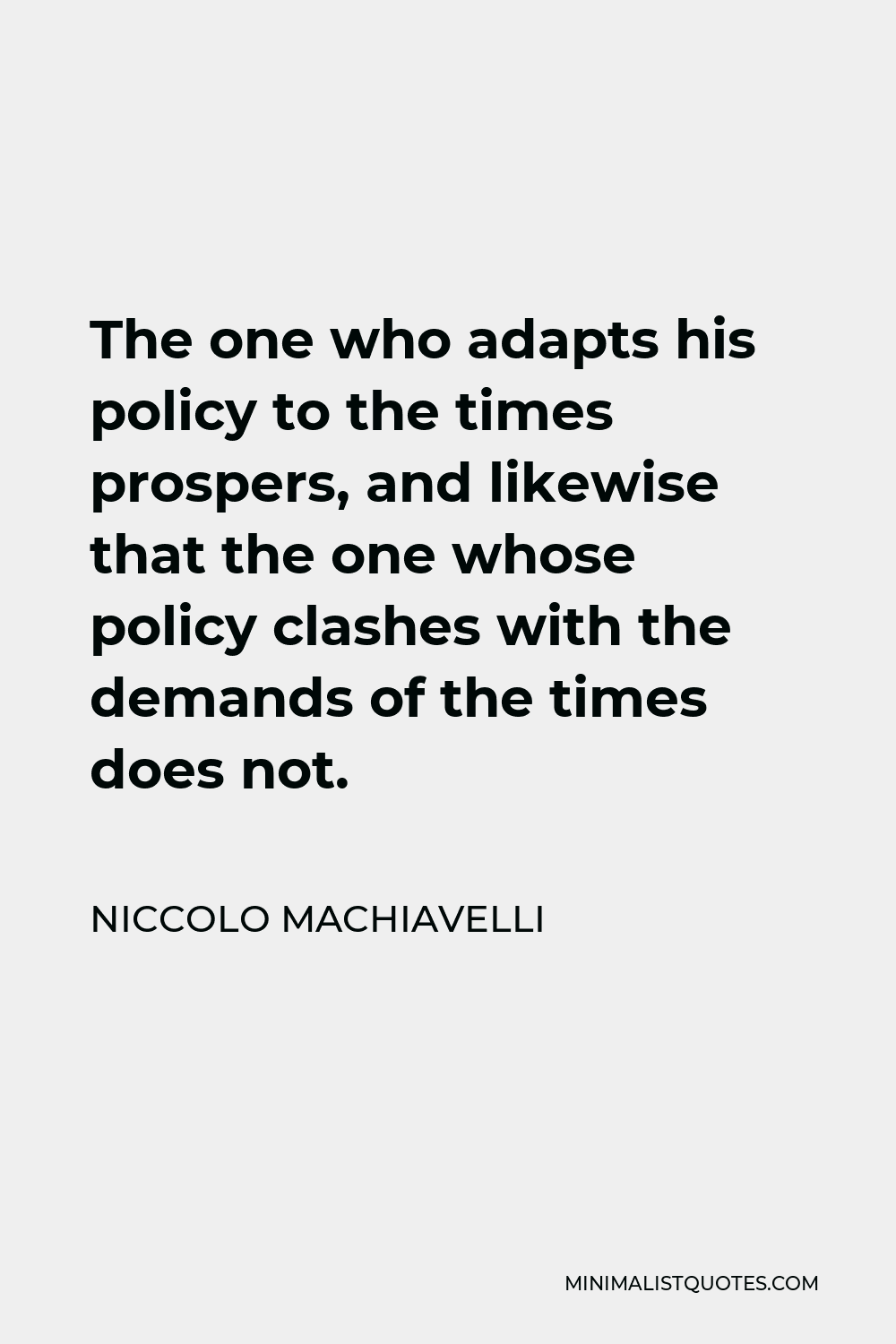Never was anything great achieved without danger.
NICCOLO MACHIAVELLIThe one who adapts his policy to the times prospers, and likewise that the one whose policy clashes with the demands of the times does not.
More Niccolo Machiavelli Quotes
-





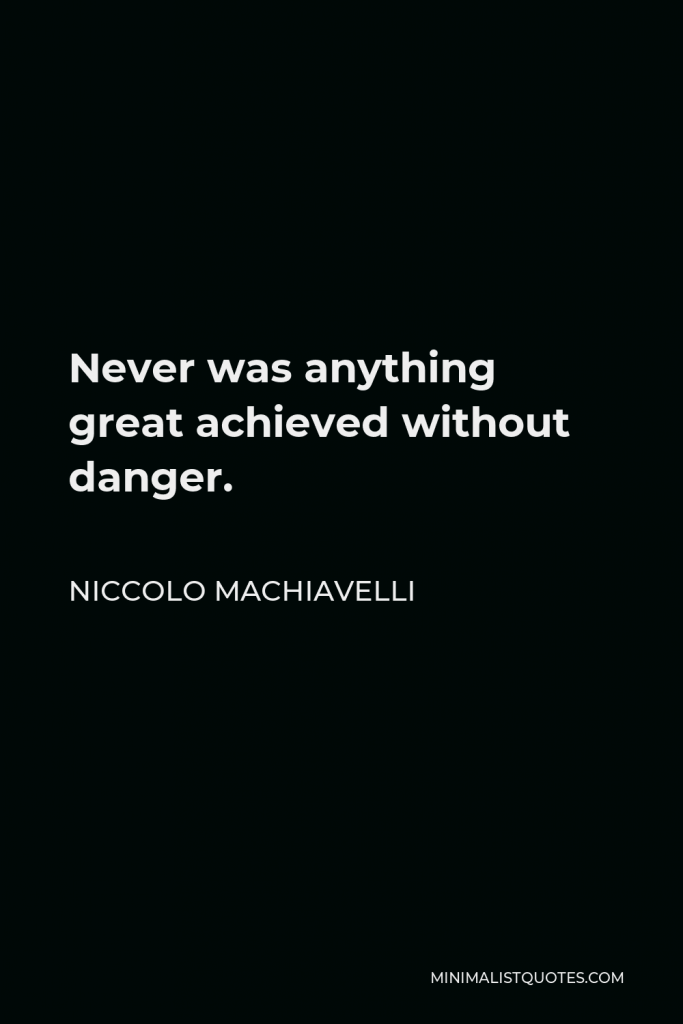

-





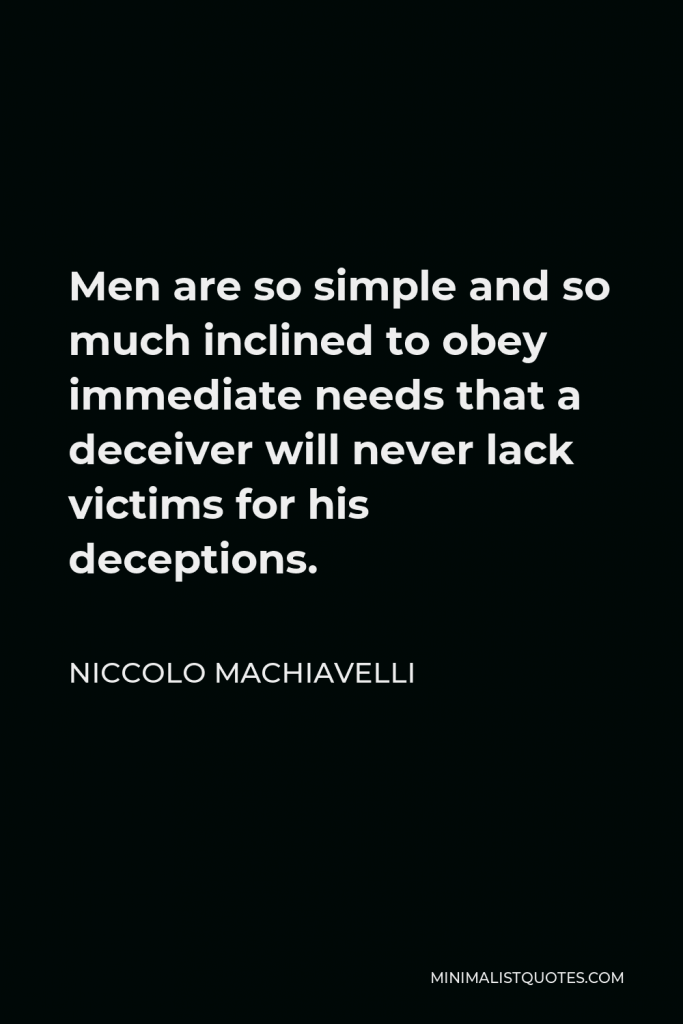

Men are so simple and so much inclined to obey immediate needs that a deceiver will never lack victims for his deceptions.
NICCOLO MACHIAVELLI -







It is better to be feared than loved, if you cannot be both.
NICCOLO MACHIAVELLI -





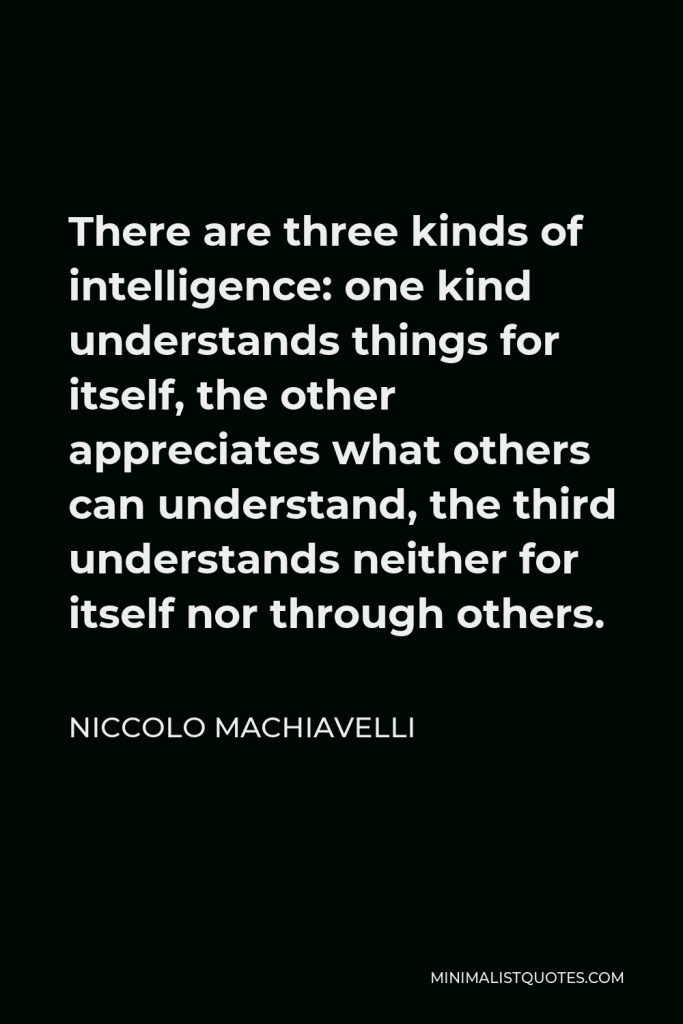

There are three kinds of intelligence: one kind understands things for itself, the other appreciates what others can understand, the third understands neither for itself nor through others.
NICCOLO MACHIAVELLI -







God is not willing to do everything, and thus take away our free will and that share of glory which belongs to us.
NICCOLO MACHIAVELLI -





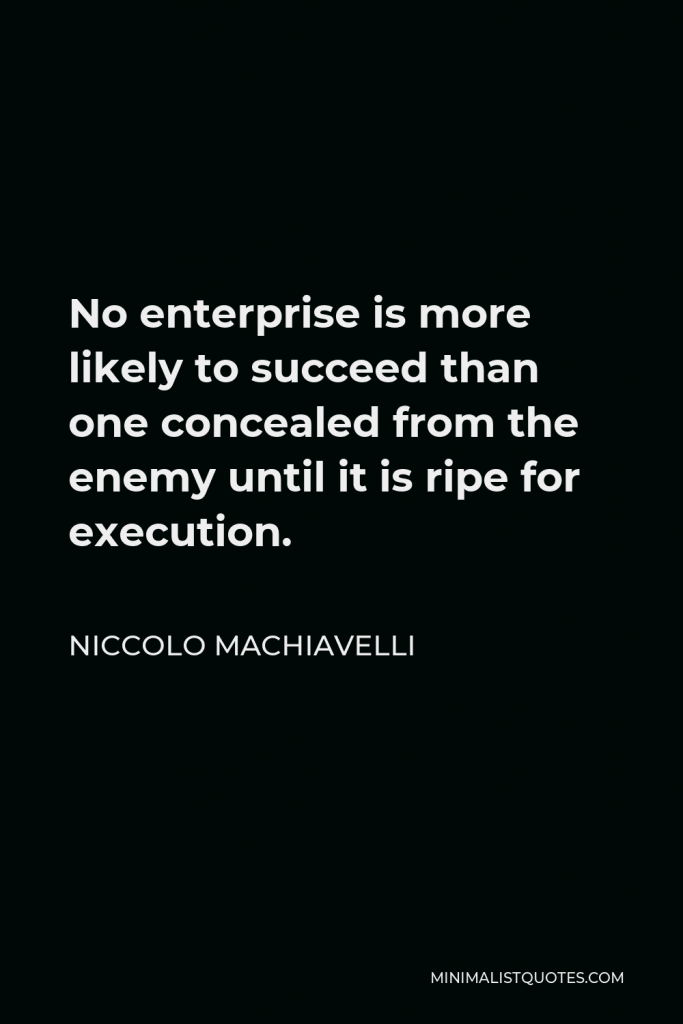

No enterprise is more likely to succeed than one concealed from the enemy until it is ripe for execution.
NICCOLO MACHIAVELLI -





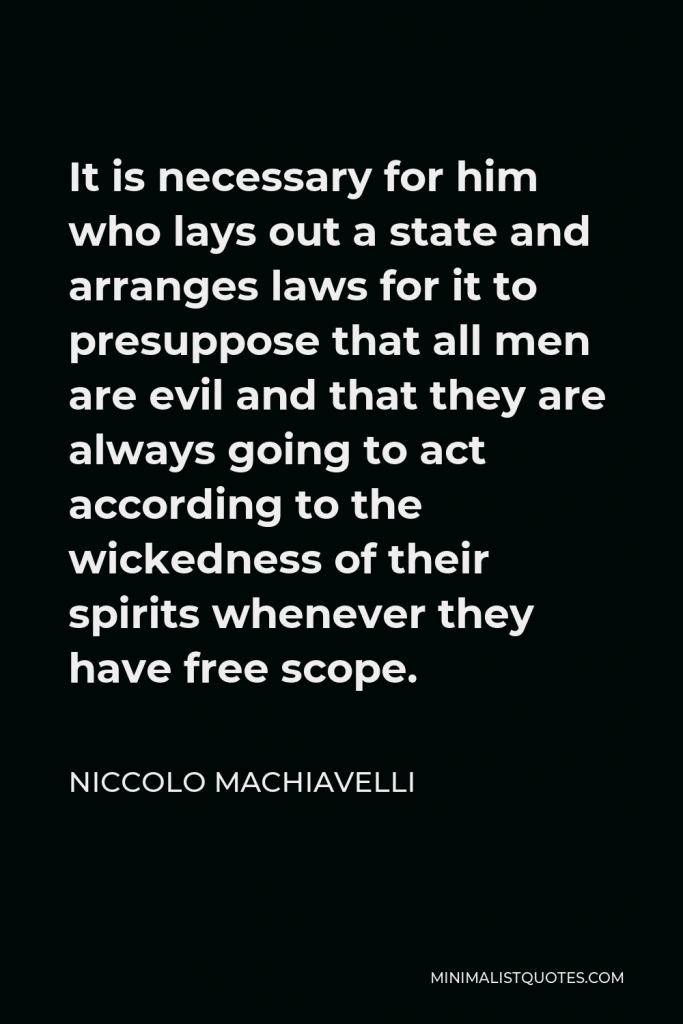

It is necessary for him who lays out a state and arranges laws for it to presuppose that all men are evil and that they are always going to act according to the wickedness of their spirits whenever they have free scope.
NICCOLO MACHIAVELLI -







A prince never lacks legitimate reasons to break his promise.
NICCOLO MACHIAVELLI -





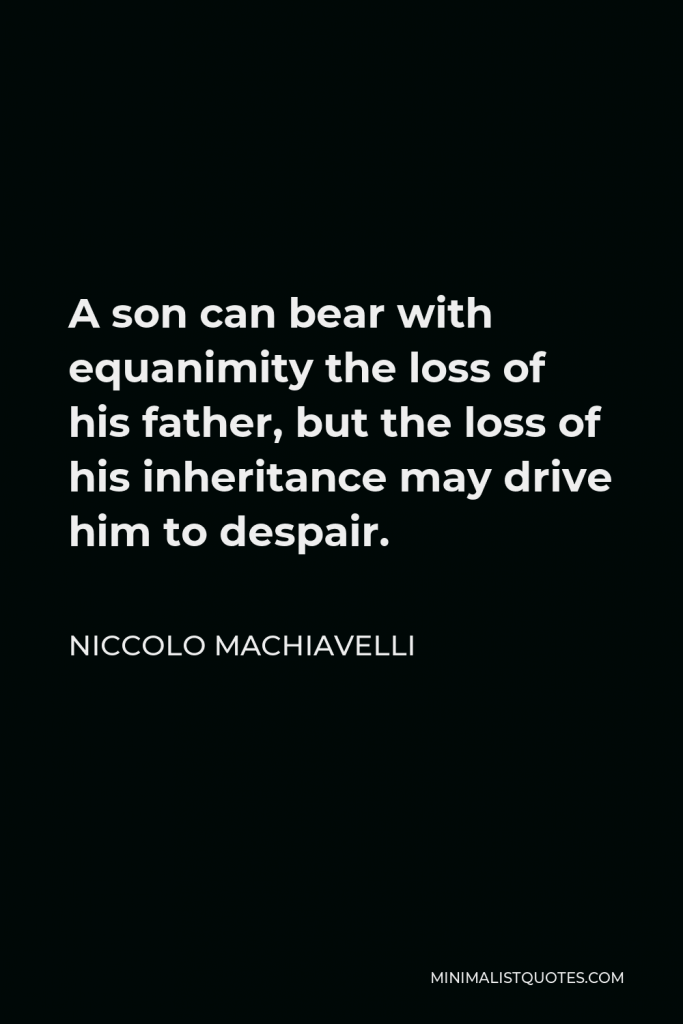

A son can bear with equanimity the loss of his father, but the loss of his inheritance may drive him to despair.
NICCOLO MACHIAVELLI -





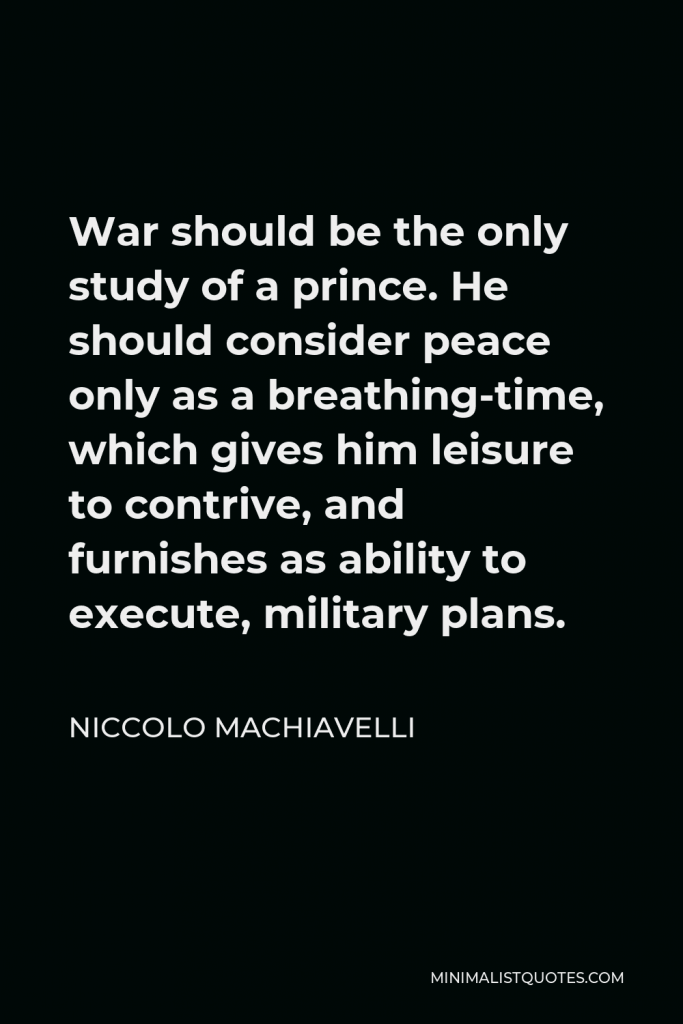

War should be the only study of a prince. He should consider peace only as a breathing-time, which gives him leisure to contrive, and furnishes as ability to execute, military plans.
NICCOLO MACHIAVELLI -







It is much more secure to be feared than to be loved.
NICCOLO MACHIAVELLI -





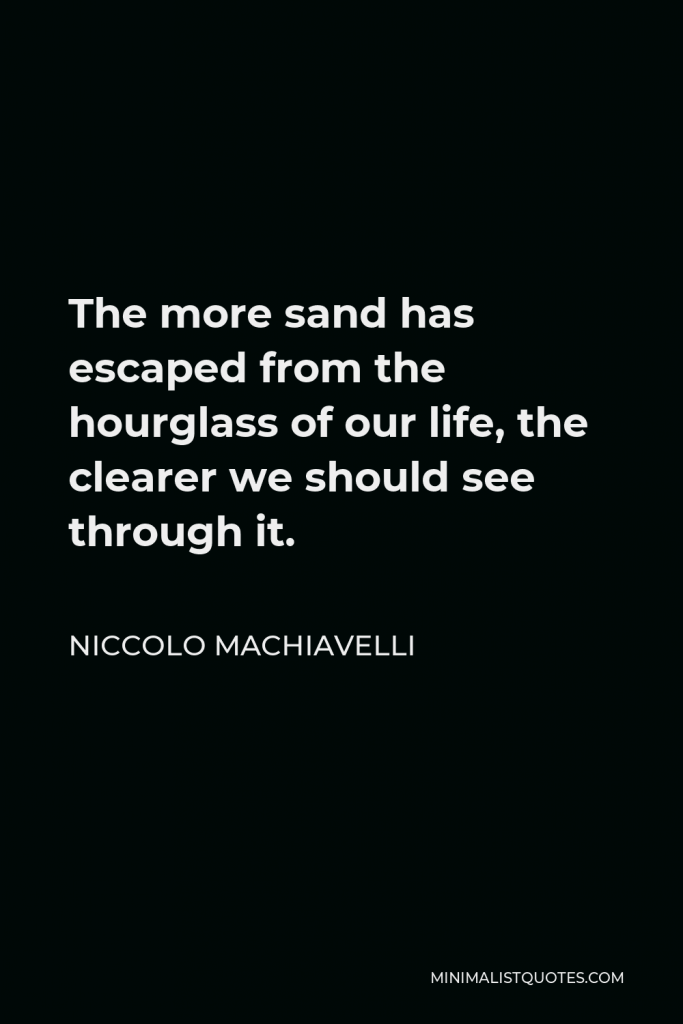

The more sand has escaped from the hourglass of our life, the clearer we should see through it.
NICCOLO MACHIAVELLI -





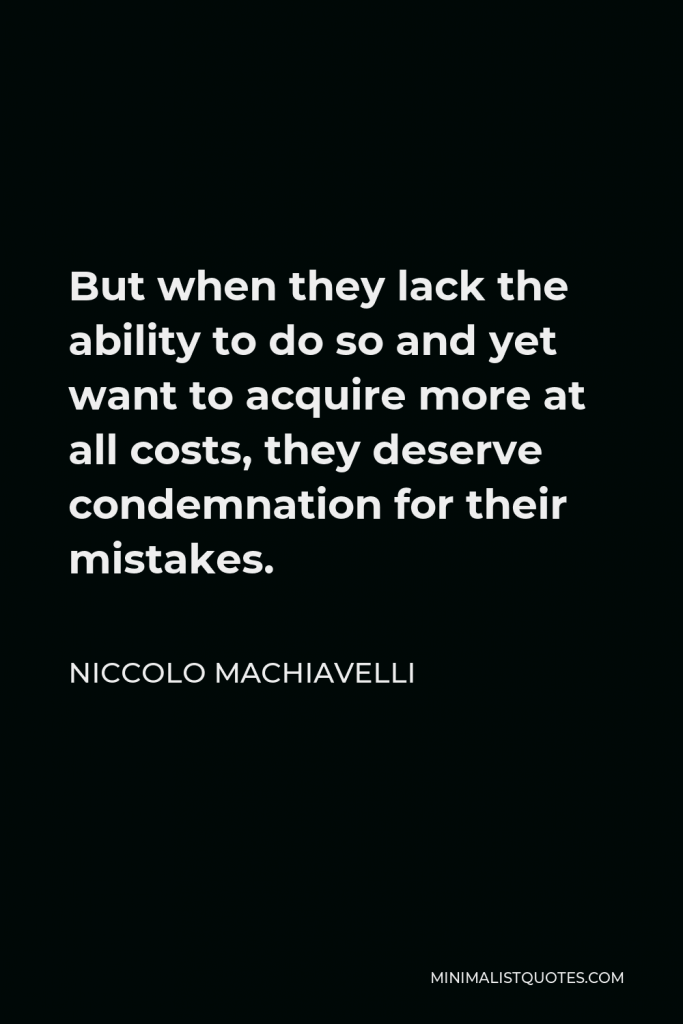

But when they lack the ability to do so and yet want to acquire more at all costs, they deserve condemnation for their mistakes.
NICCOLO MACHIAVELLI -





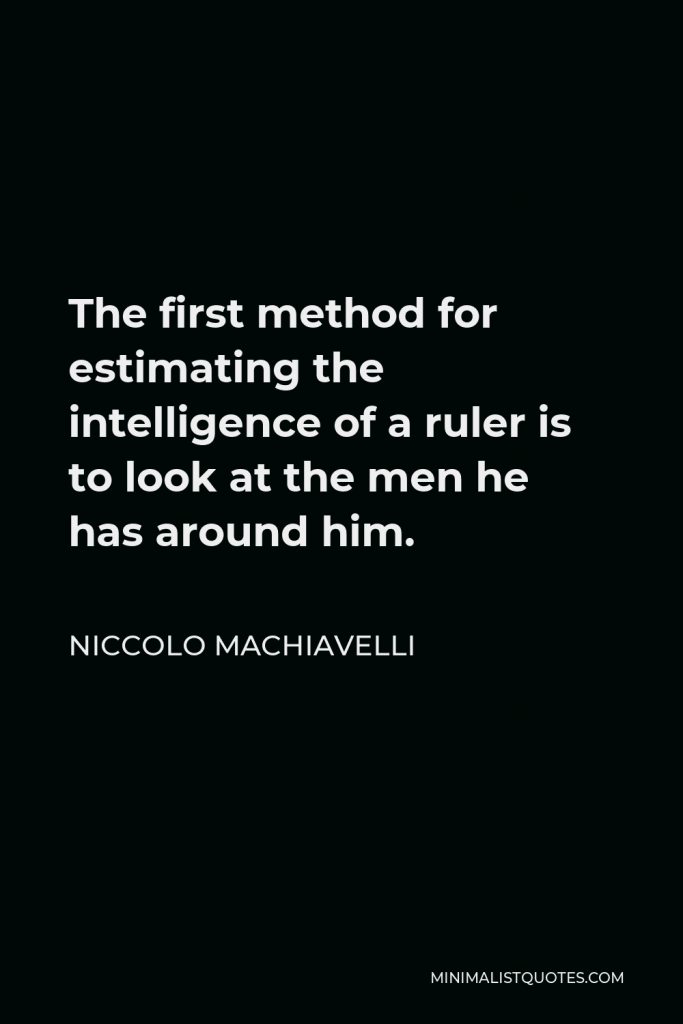

The first method for estimating the intelligence of a ruler is to look at the men he has around him.
NICCOLO MACHIAVELLI -





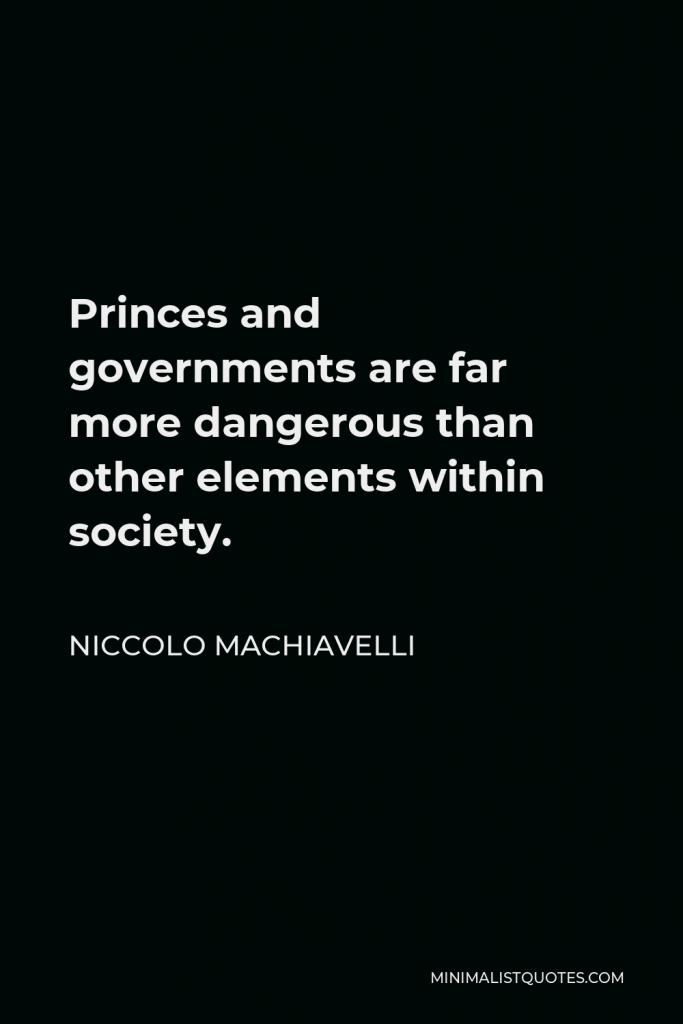

Princes and governments are far more dangerous than other elements within society.
NICCOLO MACHIAVELLI -





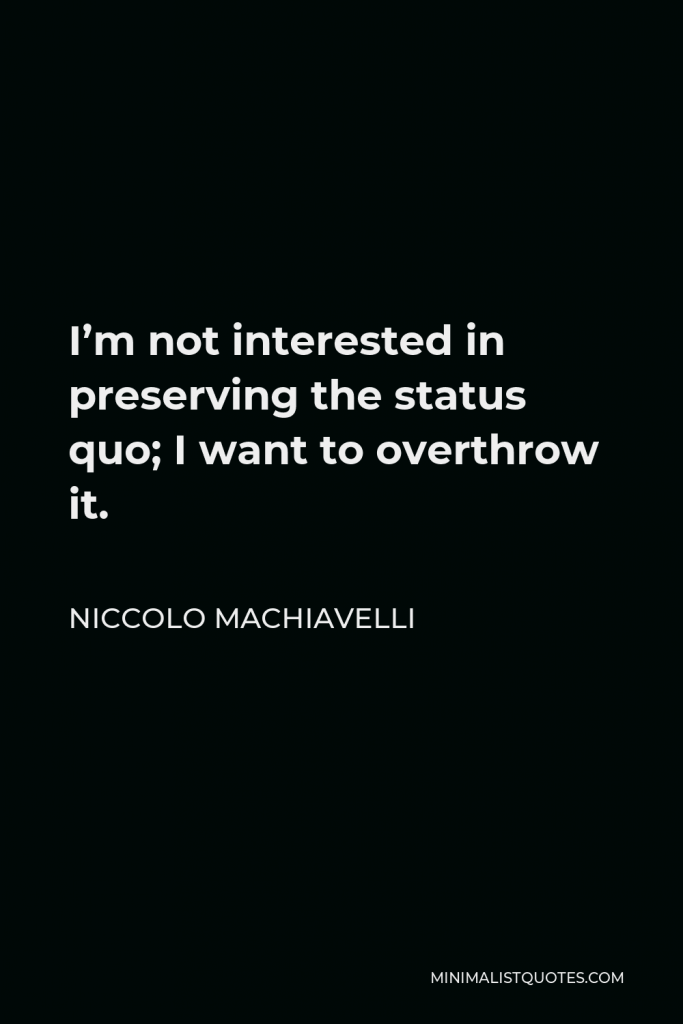

I’m not interested in preserving the status quo; I want to overthrow it.
NICCOLO MACHIAVELLI
